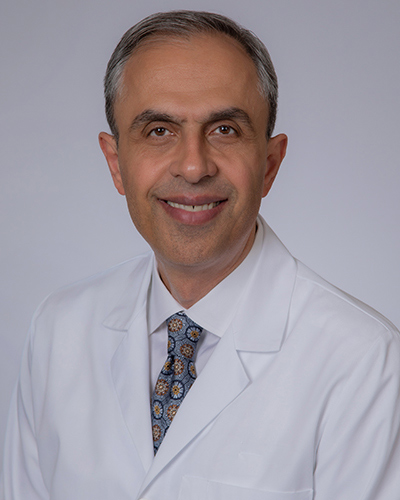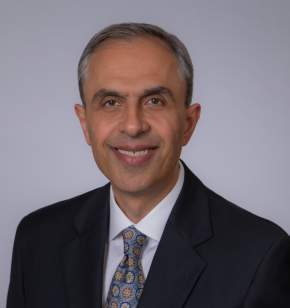Overview of Craniopharyngioma Treatment


A craniopharyngioma is a benign tumor of the central nervous system. Craniopharyngiomas are relatively rare, with an occurrence rate of 0.5 to 2 cases per one million people. Some craniopharyngiomas are asymptomatic, whereas others can cause symptoms such as vision impairment and behavioral changes. Fortunately, most craniopharyngiomas are manageable and treatable.
There are 3 treatment options for craniopharyngiomas: surgery, radiation therapy, and chemotherapy (medical management). Here is a comprehensive overview of how each treatment option works. You can also find more detailed information about each treatment option by clicking the links embedded under each section.
Surgery
Surgery for craniopharyngiomas is the most effective treatment option. It entails removing as much of the tumor as possible. Your surgeon will determine whether surgery is ideal for your condition based on factors such as your general health and other medical conditions, as well as the tumor's size, location, invasiveness, and proximity to vital structures such as the hypothalamus. He or she will also estimate the potential for nearly complete removal of the tumor via surgery.
Your surgeon may recommend one of the following surgical techniques for craniopharyngioma surgery:
Open Craniotomy Surgery
The open craniotomy technique involves creating a small opening on the skull to access the tumor. The surgeon identifies the ideal position on the skull to create the opening and temporarily removes a bone flap (a small piece of the skull). He or she will then create space between brain tissues to reach the craniopharyngioma. The surgeon should have extensive experience to be able to deliver optimal outcomes.
An open craniotomy is recommended for large and complex craniopharyngiomas in adults. The technique provides the surgeon with enough space to remove as much of the tumor as possible. The surgeon then checks to ensure that the surrounding tissues have not been damaged and are not bleeding before closing the skull.
Why should you have your surgery with Dr. Cohen?
Dr. Cohen
- 7,500+ specialized surgeries performed by your chosen surgeon
- More personalized care
- Extensive experience = higher success rate and quicker recovery times
Major Health Centers
- No control over choosing the surgeon caring for you
- One-size-fits-all care
- Less specialization
For more reasons, please click here.
Endonasal/Transsphenoidal Surgery
The transsphenoidal surgical technique is less invasive than open craniotomy surgery. It involves accessing the tumor by passing long instruments through the nostril. The technique is referred to as transsphenoidal surgery because it involves making an opening through the sphenoid bone.
The surgeon inserts a microscope or endoscope (miniature camera) through the nostril for visualization and cuts out a small piece of the sphenoid bone to reach the tumor. The surgeon then inserts microscopic surgical tools through this corridor and removes as much of the tumor as possible.
Endonasal surgery is not always possible, depending on factors such as the tumor's size and location. However, advances in technology and technique are helping to make this approach more effective for complicated craniopharyngiomas.
Radiation Therapy
Radiation therapy for craniopharyngiomas is usually used together with surgery. Your radiation oncologist may recommend it if there is residual tumor after surgery in order to keep the remaining tumor cells in control.
Radiation therapy involves shooting beams of highly concentrated energy on the tumor. The intense energy kills some of the tumor's cells, stopping further growth and sometimes even causing it to shrink. The procedure may be administered as a single dose or small periodic doses, depending on factors such as the tumor's size and location.
The actual treatment session is painless and will simply require you to lie still in a machine. There are 4 primary types of radiation therapy for craniopharyngiomas:
Stereotactic Radiosurgery
Stereotactic radiosurgery (SRS) involves focusing many beams of energy on the tumor that cumulatively leads to a high dose of energy concentrated on the tumor. Sessions may take 30–50 minutes and patients can go home the same day. SRS may not be suitable in cases when the tumor is too close to nearby critical structures such as optic nerves.
Intensity-Modulated Radiation Therapy
Intensity-modulated radiation therapy (IMRT) is an advanced form of radiation therapy that uses computerized imaging to customize the shape of the radiation target and vary the intensity of the energy beams. This allows delivery of high dosages to the center of the tumor and lower doses at its edges to minimize damage to surrounding brain tissue and nerves.
Fractionated Radiotherapy
Fractionated radiotherapy involves delivering multiple small doses of radiation for several weeks. Each treatment session may only last 10–15 minutes and patients can resume their daily activities after the procedure. Patients may need to receive these sessions multiple times a week for several weeks for treatment to take effect.
Proton Therapy
Proton therapy is a type of radiation therapy that uses proton beams instead of traditional x-rays. Proton beams are more effective than x-rays because their radiation dosage can be more confined to the tumor, minimizing damage to surrounding healthy tissues.
Chemotherapy & Medical Management
Chemotherapy and medical management of craniopharyngiomas may be recommended as a stand-alone treatment option or in conjunction with other treatment options in rare cases. The efficacy of chemotherapy in craniopharyngioma is still being investigated.
Treatment is typically administered intratumorally, meaning that the medications are injected directly into the tumor or its cyst. Bleomycin and interferon-alpha are promising chemotherapeutic agents that may help to shrink the tumor and inhibit its growth. If administered before surgery, this may help to make the tumor smaller and easier to remove.
Researchers are also conducting clinical trials on several new drugs, including cobimetinib and vemurafenib. These drugs inhibit certain enzymes that play a role in cell division and may thus impair tumor growth.
Key Takeaways
Craniopharyngiomas are relatively rare compared with other brain tumors. Fortunately, most cases are treatable and manageable. Surgery is the most effective treatment option for craniopharyngiomas. Radiation therapy and chemotherapy may also be administered to reduce the tumor's size. Overall, the ideal treatment option and approach will depend on the tumor's size, location, and proximity to other critical structures.











